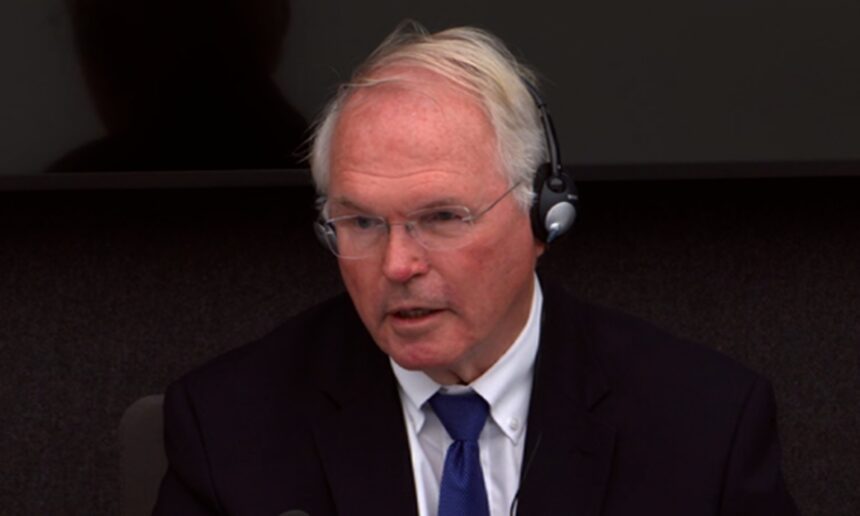In his testimony before the Hague tribunal, former U.S. diplomat Christopher Hill shed light on one of the most controversial moments of American diplomacy during the Kosovo war the labeling of the Kosovo Liberation Army (KLA) as a “terrorist organization” by U.S. envoy Robert Gelbard.
Hill confirmed that Gelbard indeed referred to the KLA as “terrorist,” explaining that the ambassador’s remark was shaped by his experience dealing with armed groups in Latin America. But as Hill made clear, this statement had serious and unintended repercussions.
“There was a lot of criticism over Gelbard’s declaration that the KLA was a terrorist organization, and there were discussions that this statement accelerated the events that followed — specifically the attack on the Jashari family,” Hill testified. “It was as if Gelbard had given a green light for that to happen. I don’t believe there is any direct proof of that, but it was certainly perceived that way — that if the American envoy calls the KLA terrorists, it sends a signal to the Serbs to move against them.”
Hill noted that Gelbard later hardened his stance toward Serbia, especially after the Prekaz massacre, and even confronted Slobodan Milošević directly. “After that, Milošević said he no longer wanted to meet Gelbard,” Hill recalled.
The American diplomat also emphasized that, despite Gelbard’s words, the U.S. government never officially designated the KLA as a terrorist organization. “The United States has a formal mechanism for declaring a foreign group as terrorist, and that was never applied to the KLA,” Hill explained.
His testimony exposes how one poorly chosen word — uttered by a senior U.S. official — may have emboldened Belgrade’s brutal campaign in Kosovo. While Washington sought to distance itself from Gelbard’s statement, its echo in 1998 was enough to give Serbia’s forces a false sense of legitimacy in their violent crackdown on Albanian resistance.







